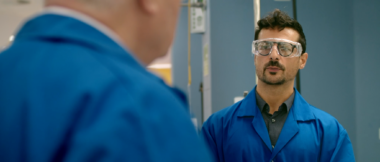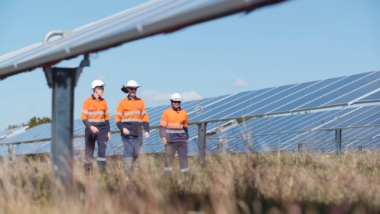FOR IMMEDIATE RELEASE: Wednesday, 20 September, 2023
Spring heatwave and sweltering El Niño summer ahead reignites call for net zero emissions by 2035: Climate Council
AS THE RETURN of El Niño heralds a hot, dry and fire-prone summer, a new Climate Council report provides the latest scientific evidence that the only effective way to put the brakes on extreme heat is to drive down emissions, fast.
The review reaffirms the Climate Council’s recommendation to slash emissions 75 percent by 2030, and reach net zero by 2035, in line with the science.
Mission Zero: How today’s climate choices will reshape Australia, shows current targets and actions have us barrelling towards catastrophe.
It comes as parts of Australia are experiencing temperatures more than 15°C above the average, a fire ban is already declared for Sydney and fires are already burning around the Northern Territory, Queensland and New South Wales.
Report author, Climate Council Research Director Dr Simon Bradshaw said: “We have both an El Niño event and a positive Indian Ocean Dipole underway, amplified by climate change, which heightens the risk of dangerous heat and severe fires. The reality is stark: there’s no safe level of global warming. Everything we do now matters. The only way we can turn down the heat is to get our emissions plummeting, and fast.”
Dr Bradshaw said stronger action on climate change this decade will deliver benefits for Australians including fewer deadly heatwaves, cleaner air, better mental health, more affordable and reliable energy, more jobs and a stronger economy.
The report makes clear that continuing reckless coal and gas dependence, and relying on false solutions including offsets, is greatly endangering Australia's future.
“While emissions from Australia's land sector have fallen, those from major sectors like transport and industry continue an inexorable rise meaning we are not on track to achieve the deep cuts needed this decade. Collectively, governments around the world - including Australia - aren't doing enough to drive down emissions,” Dr Bradshaw added.
On our current trajectory of warming of well over 2°C by the end of the century, Australia could experience:
- A marked increase in extremely hot days, including days above 50°C in Sydney and Melbourne.
- Deadlier heatwaves and worsening fire conditions: The number of extreme fire days will double at 3°C of global warming. In Queensland, heatwaves will occur as often as seven times a year and last on average 16 days.
- The large-scale collapse of marine ecosystems.
- Up to 250,000 Australian properties at risk of coastal inundation.
- Abrupt and irreversible shifts in rainfall patterns globally, as a result of tipping points, and leading to the collapse of our food systems.
These impacts can be strongly limited through much steeper cuts to emissions this decade, leading to benefits like: critical ecosystems including the Great Barrier Reef given a fighting chance, stronger food security, a lower risk of deadly floods, fires and droughts and limiting the rate of sea level rise that will, in turn, save people and properties.
Dr Simon Bradshaw continued: “We have reviewed the scientific evidence and it is abundantly clear - Australia must leave our fossil fuels in the ground and get our emissions on a steep downward trajectory this decade. It's game on, not game over, for climate action. We can do this. We have the technology, the resources and the know-how to turn things around.
“Today we must ask our leaders: do you want to be remembered for inching ahead with incremental changes that fell catastrophically short of what we knew was necessary? Or for rising to the challenge and seizing all the opportunities now before us?”
Report co-author Emerita Professor Lesley Hughes said: “This report paints a vivid contrast for Australia's century's end - one that is completely unrecognisable or one where much of what we cherish about our beautiful country has been saved.
“These different futures depend on the level of our ambition and the decisiveness our leaders here in Australia, and globally, show to turn their backs on coal and gas, while charging full steam ahead into our clean energy, zero-emissions future.
“Right now, we stand at the precipice. Once we cross those tipping points, we cannot return. So it really doesn’t get much more urgent than this. We’ve got to aim higher and go faster.”
ENDS
For interviews please contact Jane Gardner on 0438 130 905/ [email protected]
About us:
The Climate Council is Australia’s leading community-funded climate change communications organisation. It was founded through community donations in 2013, immediately after the then-Abbott Government dismantled the Climate Commission. We provide authoritative, expert and evidence-based advice on climate change to journalists, policymakers, and the wider Australian community. For further information, go to: climatecouncil.org.au Or follow us on social media: facebook.com/climatecouncil and twitter.com/climatecouncil
Contact details:
For interviews please contact the Climate Council media team on 0485 863 063 or [email protected]



